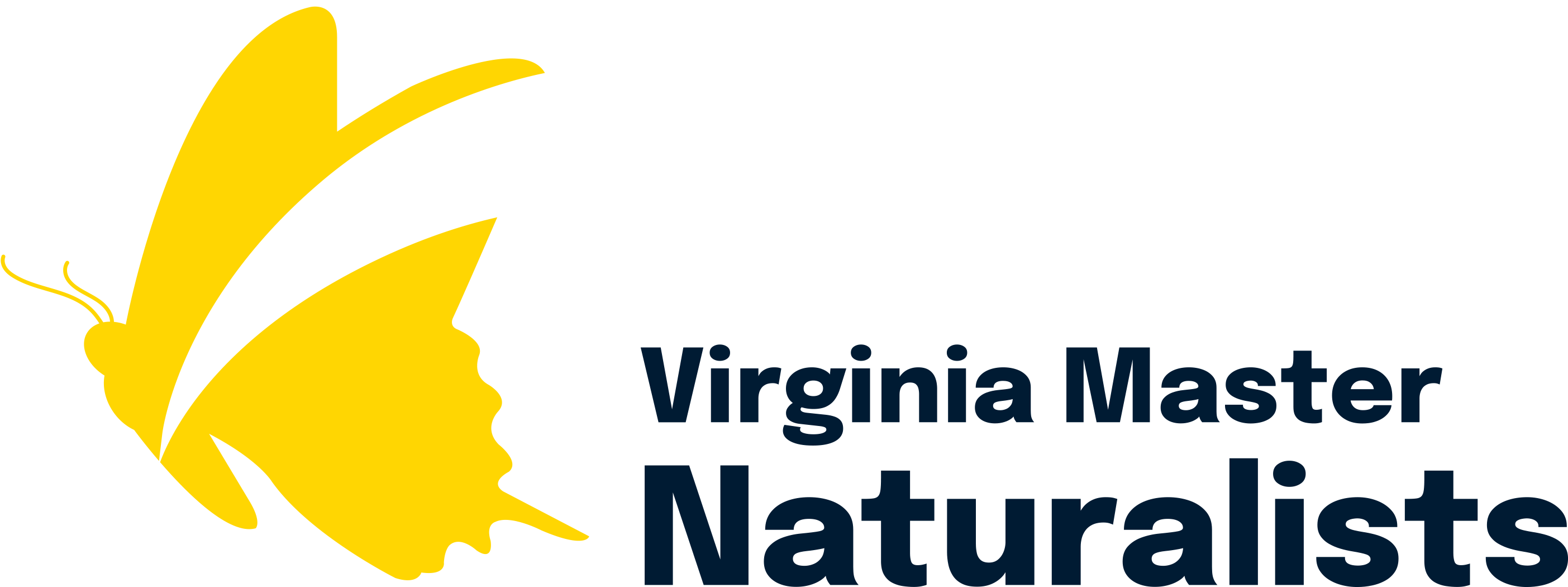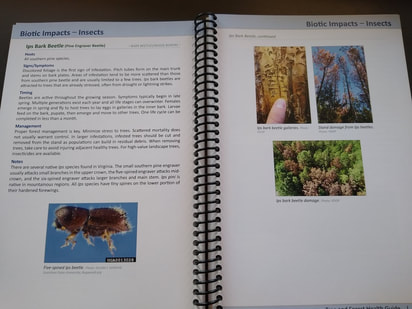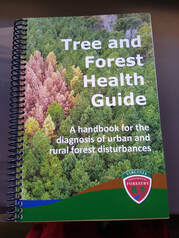 DOF’s Tree and Forest Health Guide. Photo by Ellen Powell.
DOF’s Tree and Forest Health Guide. Photo by Ellen Powell.
By Ellen Powell, VDOF
Virginia Department of Forestry (VDOF) has a new Tree and Forest Health Guide, available in PDF format from the agency website.
This book was originally created for VDOF field staff who encounter tree health issues every week, but it’s also a great resource for Virginia Master Naturalist volunteers. The guide has sections on insects, other animals, diseases, and abiotic factors that affect tree health. There are multiple photographs for most issues, and the symptom descriptions and management recommendations are easy to understand. The book also has a helpful index to common pests and diseases listed by tree species.
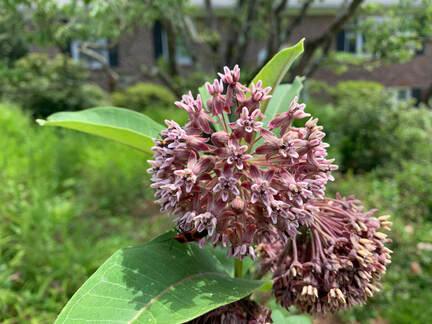 Common milkweed,Asclepia syriaca,in flower. Photo by M. Prysby.
Common milkweed,Asclepia syriaca,in flower. Photo by M. Prysby.
By Ann Regn, VDEQ
Space is still available to participate in the Landscaping with Native Plants webinar series.
The spring presentations conclude in May, but the series picks up again in September. Register today and receive a recording of the webinars you missed. A portion of the $10 registration fee will help support the Plant Virginia Natives initiative.
The Virginia Coastal Zone Management Program (CZM), led by the Virginia Department of Environmental Quality, collaborated with Plant Virginia Natives regional campaigns to offer this 12-part webinar series state-wide.
The series began with a keynote presentation by Doug Tallamy who pitched his new book about oaks and a Homegrown National Park. “Hearing Doug’s compelling message in-person is a huge treat, but a silver lining of having to go virtual is how many more people we are reaching through the webinar format,” explains CZM Outreach Coordinator Virginia Witmer. “Currently, there are 2,737 registrants, and we have increased capacity due to the overwhelming response. And the participation during Q&A has been tremendous. The partnership has fielded many more questions than what could have been handled at an in-person event.”
The program has engaged many organizations, but Witmer noted that special thanks goes to the Lewis Ginter Botanical Garden and Blue Ridge PRISM for help with registration and being Zoom hosts.
Although the webinar series was planned with native plant novices in mind, post webinar comments confirm that the presentations have had a lot to offer all levels.
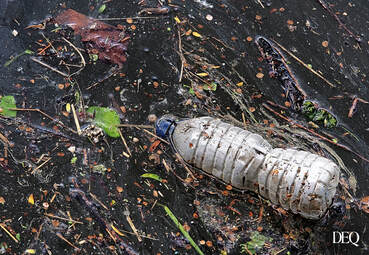
By Ann Regn, VDEQ
On March 23, Governor Northam signed Executive Order Seventy-Seven (EO 77), Virginia Leading by Example to Reduce Plastic Pollution and Solid Waste, which orders all executive branch state agencies, including institutions of higher education, and their concessioners to take a series of steps to reduce plastic pollution and eliminate the need for new solid waste disposal facilities in Virginia. The requirements of the executive order are under development and will be distributed to state agencies according to the designated timeline.
First among the actions agencies must take is the cessation of buying, selling or distributing certain single-use plastic and polystyrene items by July 21. Following the cessation of use, agencies are directed to phase out all non-medical single-use plastic and expanded polystyrene objects entirely by the end of 2025 and develop plastic pollution and solid waste reduction plans. NOTE: The executive order does provide for exemptions in certain instances.
The Virginia Department of Environmental Quality (DEQ) is charged with providing agencies with a template for the plastic pollution and solid waste reduction plans, including a mechanism to inventory the non-medical single-use plastic and expanded polystyrene items typically used. DEQ, in coordination with other agencies, is also required to develop guidance and recommendations on plan implementation.
Additional information on implementation of EO 77 is available on DEQ’s website.
